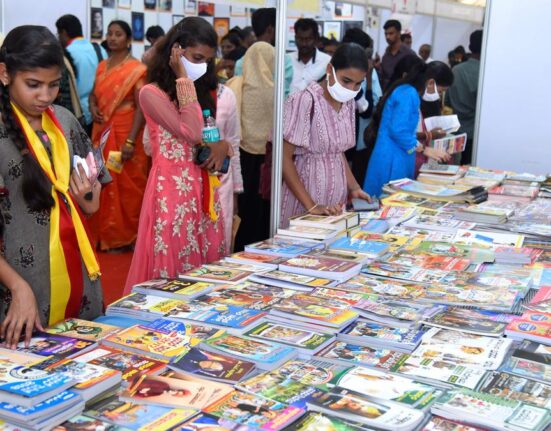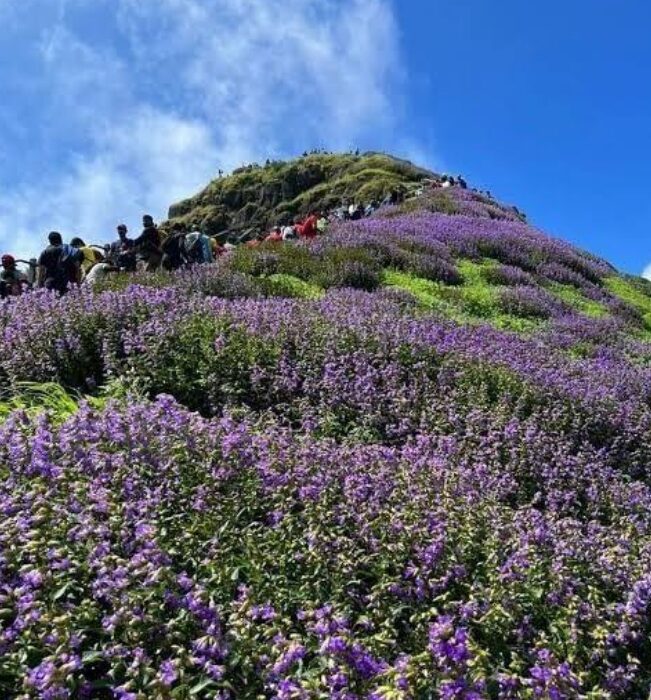The Western Ghats, a UNESCO World Heritage Site known for its rich biodiversity, is witnessing a spectacular event as the karvi flowers (Strobilanthes kunthiana) bloom after an eight-year hiatus. This rare phenomenon, characterized by the synchronized flowering of these vibrant purple blooms, occurs only once every eight years, making it a significant ecological event for the region.
Ecological Importance
Karvi flowers are vital to the ecosystem of the Western Ghats. They play a crucial role in supporting local wildlife, providing food for various insects, birds, and other animals during their brief blooming period. The mass flowering also triggers a surge in activity among pollinators, contributing to the overall health of the region’s flora.
Conditions for Blooming
The bloom is influenced by specific climatic conditions, including the right mix of temperature and rainfall. After years of preparation beneath the surface, the karvi plants require the right signals from nature to emerge in full bloom. This year, the perfect weather conditions have led to a spectacular display, attracting both locals and tourists eager to witness the event.
Cultural Significance
For the local communities, the flowering of the karvi holds cultural significance. It is often associated with various folk traditions and festivals, marking a time of celebration and renewal. The blooms serve as a reminder of the intricate relationship between nature and the local way of life.
Conservation Efforts
The return of the karvi flowers also highlights the importance of conservation efforts in the Western Ghats. As climate change and human activity threaten many species and ecosystems, the blooming of the karvi serves as a reminder of nature’s resilience and the need for sustainable practices to protect these vital habitats.
Conclusion
The blooming of the karvi flowers in the Western Ghats is more than just a beautiful sight; it is a celebration of nature’s cycles and the interconnectedness of life in this unique ecosystem. As locals and visitors alike enjoy the stunning display, it is an opportunity to reflect on the importance of preserving such extraordinary natural phenomena for future generations.
News Credit: The Better India












